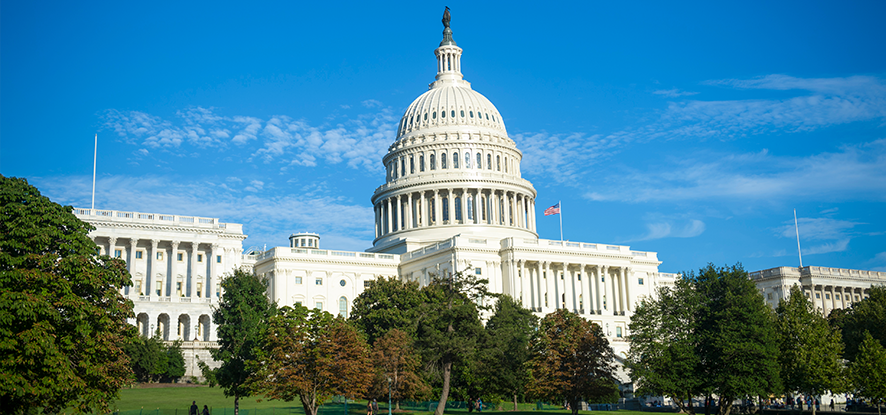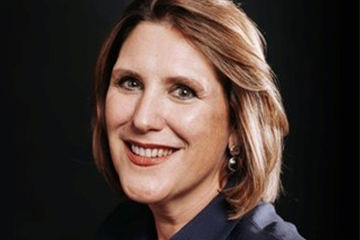DC Summer Scholars Program

DC Summer Scholars Program
The Pepperdine School of Public Policy DC Summer Scholars Program explores topics typically untouched by Washington, DC-based policy studies programs, pushing its participants to understand the vital interconnection between culture, history, and public policy.
The program will offer one, 3-unit graduate-level course eligible for exclusive full-tuition scholarships, where accepted scholars will learn from top policy academics and practitioners. The four-week seminar will accommodate only 20 qualified scholars, hosted at Pepperdine's Washington, DC Foggy Bottom campus (2011 Pennsylvania Avenue, NW) with class sessions meeting Tuesday/Thursday evenings and Saturday mornings in July.
Applicants may apply by filling out the DC Policy Scholars Application. Course descriptions can be found below.
Upon completion of the program, scholars will receive an an applied philosophy in education policy certificate of completion from the School of Public Policy. Credits may be used toward future enrollment at the Pepperdine School of Public Policy for a master of public policy degree.
Important Note:
The 2026 DC Scholars program has been temporarily paused as we focus our attention on our special three-year program with the Department of Education, featuring a new undergraduate summer seminar, Roots of American Order. We encourage students to apply to that program.
2025 Session and Dates
Who is Eligible?
Application is open to rising undergrad juniors and seniors, plus recent college grads who are considering graduate school. *Please note that the Office of International Student Services will not issue an F-1 visa for these classes, and visitors to the United States in B-1, B-2, WT, or WB visitor visa status are not eligible to audit or enroll in these courses.
Tuition
A maximum of 20 qualified scholars will be selected for the session. All admitted scholars will be awarded full-tuition scholarship for this 3-credit class. DC Summer Scholars will not receive any additional financial aid or support for their participation in the program. Pepperdine University and the School of Public Policy are not responsible for funding/finding/providing housing, transportation, or other expenses related to enrollment in the program.

 Charmaine Yoest has a track record serving in many facets of political life--in the
White House, on a presidential campaign, and leading a national nonprofit. Now on
Capitol Hill, she serves as executive director of the House Values Action Team, working
with Chairman Robert Aderholt. Previously, she served as a vice president of the Heritage
Foundation, directing the domestic policy work of the national think tank voted most
influential on policy issues three years running. Those issues included health care
and welfare reform, education policy, family formation, women’s issues and religious
liberty. Yoest served in the White House as associate director of the Office of National
Drug Control Policy (ONDCP) and also as the assistant secretary for public affairs
at the U.S. Department of Health and Human Services (HHS) where she provided leadership
for the $1.3 trillion department’s public affairs programs, and coordination of strategic
messaging across the 11 HHS operating divisions. She has appeared as a spokesperson
on every major television network and cable outlet and has been published in the leading
national publications. She has provided testimony in front of the United States Congress
on multiple occasions. She is also the author of Mother in the Middle (HarperCollins), an examination of childcare policy.
Charmaine Yoest has a track record serving in many facets of political life--in the
White House, on a presidential campaign, and leading a national nonprofit. Now on
Capitol Hill, she serves as executive director of the House Values Action Team, working
with Chairman Robert Aderholt. Previously, she served as a vice president of the Heritage
Foundation, directing the domestic policy work of the national think tank voted most
influential on policy issues three years running. Those issues included health care
and welfare reform, education policy, family formation, women’s issues and religious
liberty. Yoest served in the White House as associate director of the Office of National
Drug Control Policy (ONDCP) and also as the assistant secretary for public affairs
at the U.S. Department of Health and Human Services (HHS) where she provided leadership
for the $1.3 trillion department’s public affairs programs, and coordination of strategic
messaging across the 11 HHS operating divisions. She has appeared as a spokesperson
on every major television network and cable outlet and has been published in the leading
national publications. She has provided testimony in front of the United States Congress
on multiple occasions. She is also the author of Mother in the Middle (HarperCollins), an examination of childcare policy.